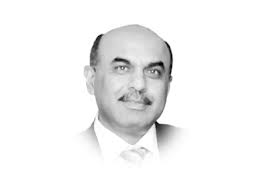
(Credit: tribune.com.pk)
Pakistan is poised to be the largest recipient of UK aid with an expected 67 per cent increase, which will jack up the amount of aid to 446 million pounds next year. In a country blighted by a faltering economy and tumbling social care support, this magnanimity sparked a new debate. A disgruntled British parliamentary committee lamented that the increase in aid should be made contingent upon greater tax collection from the rich and clamping down on corruption in Pakistan. The chairman of the Committee, Malcolm Bruce, said that “we cannot expect people in the UK to pay taxes to improve education and health in Pakistan if the Pakistani elite do not pay meaningful amounts of income tax”.
Considering Europe’s economic recession, such vexation is likely to spiral in the coming years. Pakistan’s tax administration is debilitated by inefficiency, corruption and apathy by the elite. Except the salaried middle class who has no option, everyone else can easily escape the porous tax net. Pakistan has one of the lowest tax-to-GDP ratios, with only nine per cent of GDP contributed by taxes, and trails behind other Asian countries, e.g., Afghanistan (11 per cent), Sri Lanka (13 per cent), India (16 per cent) and Thailand (17 per cent). The chairman of the FBR made a startling revelation at a meeting of the Senate’s Standing Committee on Finance, last year, by sharing that 84 per cent of tariff and duty rates have either been exempted or reduced to benefit certain influential lobbies. He aptly termed it a “Financial NRO”. This explains another flabbergasting fact that during the past five years, the government took loans of Rs604 billionfrom the International Monetary Fund (IMF) and vitiated the benefit by issuing tax exemptions of Rs719 billion during the same years. In a country of 180 million, only 3.5 million persons are registered taxpayers, 1.5 million of whom are dormant and one million are salaried employees. It is hard for anyone on earth to countenance this obnoxious perpetuation.
The UK — one of the largest social sector financer of Pakistan — is at the cusp of stagflation and soaring youth unemployment. Concomitant yawning economic disparities and suicides have dwarfed all past records in Europe. According to a research conducted in the UK, 30 per cent of income in 2005 remained with the top five per cent of earners. The Topical youth NEET (not in employment, education and training) has crossed 1.2 million in Britain, whereas, Greece, Spain and Italy are enduring a tailspin. May Day witnessed highly charged protest rallies in major cities of Europe. In this backdrop, a teeth-baring reaction to aid is plausible. Although geopolitical interests of the US and the UK have a perforce to ensure sustained flow of aid to Pakistan, this may, however, entail stringent conditions in future years.
Pakistan, as a surrogate battlefield for the US and its allies, had been receiving a generous dole-out for decades, though, at an exorbitant price of self-esteem and pride. Aid effectiveness is yet another conundrum. While billions of dollars are funnelled, citizens are still entangled in perpetuating poverty, terrorism continues to torments lives and the country endures perennial political instability. Demand for drastic measures to reform a dishevelled polity and economy cannot be parried any longer. In a rapidly changing economic vista, in the so-called developed world, Pakistan needs to device strategies to wean away from foreign aid and plug breaches in the national exchequer. Prosperity and dignity can never be achieved through begging bowls.
Published in The Express Tribune, May 16th, 2013.

